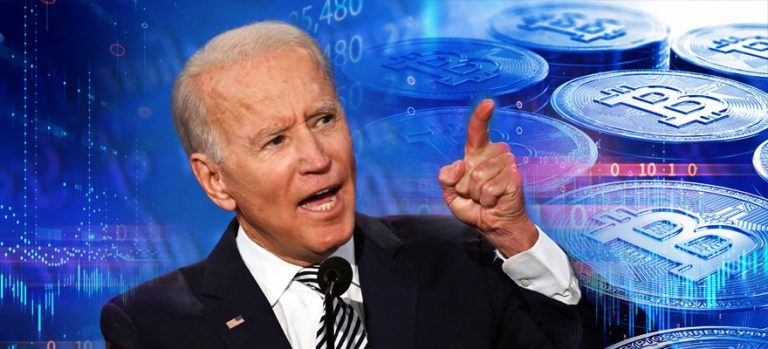
Sui, the cryptocurrency exchange platform based in Singapore, has seen its share price plummet to a record low after a report emerged that the South Korean Financial Services Commission (FSC) is investigating its operations.
According to the report, the FSC is looking into allegations that Sui violated anti-money laundering and consumer protection laws, as well as failed to register as a virtual asset service provider in South Korea. The FSC has reportedly requested information from Sui and its local partner, Koinex, and may impose sanctions or even ban the exchange from operating in the country.
Sui, which launched in 2019, claims to be one of the largest and most secure crypto exchanges in Asia, with over 10 million users and more than 200 trading pairs. However, it has also faced several controversies and legal challenges in the past, such as being accused of inflating its trading volume, facilitating illegal gambling activities, and being hacked multiple times.
Register for Tekedia Mini-MBA edition 19 (Feb 9 – May 2, 2026): big discounts for early bird.
Tekedia AI in Business Masterclass opens registrations.
Join Tekedia Capital Syndicate and co-invest in great global startups.
Register for Tekedia AI Lab: From Technical Design to Deployment (next edition begins Jan 24 2026).
The news of the FSC probe has sent shockwaves through the crypto market, as South Korea is one of the biggest and most active markets for digital assets. Sui’s share price dropped by more than 40% on Monday, reaching a low of $0.12 per token. The exchange’s market capitalization has also shrunk to less than $100 million, down from over $1 billion at its peak.
Sui has not issued any official statement or comment on the report, but some analysts believe that the exchange may face a similar fate as Bithumb, another major crypto platform that was raided and fined by the South Korean authorities last year. Others suggest that Sui may try to relocate or rebrand itself to avoid further scrutiny and regain trust from its customers and investors.
Drivechains are a proposed extension to Bitcoin that could enable more innovation and scalability on the network. They are essentially sidechains that are secured by the main Bitcoin blockchain but allow for different rules and features. Drivechains could enable Bitcoin to support smart contracts, faster transactions, privacy enhancements, and more.
However, drivechains are not without challenges and trade-offs. One of the main issues is the security model of drivechains, which relies on miners to act honestly and not steal or censor the funds on the sidechains. This requires a high level of coordination and trust among miners, as well as incentives for them to behave correctly.
Bitfinex CTO Paolo Ardoino recently shared his views on drivechains and their potential impact on Bitcoin. He said that drivechains could be a “game-changer” for Bitcoin, as they would allow for more experimentation and innovation without compromising the security and decentralization of the main chain. He also said that drivechains could reduce the need for hard forks or contentious changes to the Bitcoin protocol.
However, Ardoino also pointed out some of the drawbacks and risks of drivechains. He said that drivechains would introduce more complexity and technical challenges to the Bitcoin ecosystem, and that they would require a lot of education and awareness among users and developers. He also said that drivechains would depend on the willingness and cooperation of miners, which could be influenced by external factors such as politics, regulations, or market conditions.
Ardoino concluded that drivechains are an interesting and promising idea, but that they are not a silver bullet for Bitcoin’s scalability and innovation challenges. He said that drivechains would require a lot of research, testing, and community feedback before they could be implemented safely and effectively. He also said that drivechains would not replace or compete with other scaling solutions such as Lightning Network or Liquid Network, but rather complement them and offer more choices and flexibility to users.
In a letter sent to President Joe Biden, Sen. Elizabeth Warren (D-Mass.) and 103 other members of Congress expressed their concerns about the potential use of cryptocurrencies to finance terrorist activities. The letter urges the administration to develop a comprehensive strategy to address the risks posed by the growing adoption of digital assets, especially in regions with weak or unstable governments.
The letter cites recent reports of terrorist groups such as ISIS, Al-Qaeda, and Hamas using cryptocurrencies to raise funds, evade sanctions, and facilitate cross-border transactions. The letter also notes that some countries, such as Iran, Venezuela, and North Korea, have attempted to use cryptocurrencies to circumvent U.S. and international pressure. The letter warns that these trends could undermine the effectiveness of U.S. counterterrorism efforts and pose a threat to national security.
The letter calls on the administration to work with Congress and other stakeholders to develop a coordinated response to the challenges posed by cryptocurrencies. The letter suggests several actions that could be taken, such as:
Enhancing the capacity of U.S. intelligence and law enforcement agencies to monitor and disrupt illicit crypto activities.
Strengthening the regulatory framework for crypto service providers and exchanges, both domestically and internationally.
Promoting international cooperation and information sharing among allies and partners on crypto-related issues.
Supporting innovation and research in the crypto sector, while ensuring that it adheres to high standards of transparency, accountability, and consumer protection.
The letter concludes by stating that the lawmakers stand ready to work with the administration to address the emerging threats posed by cryptocurrencies and ensure that they are used for legitimate purposes only.
The letter was signed by 104 members of Congress, including 12 senators and 92 representatives from both parties. The letter was also endorsed by several organizations, such as the Anti-Defamation League, the Center for a New American Security, and the Foundation for Defense of Democracies.



